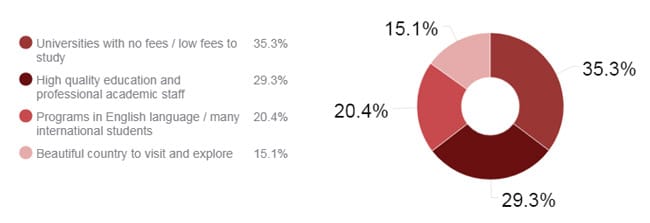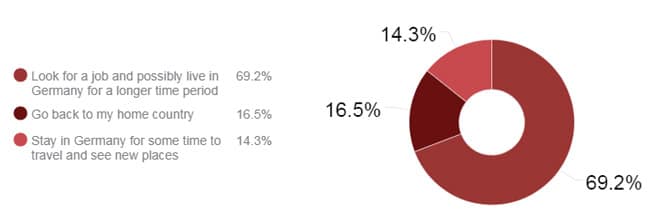Seven in ten foreign students plan to stay in Germany after graduation
Germany is one of the world’s top study destinations – the sixth largest by foreign enrolment, in fact, after only the US, UK, Australia, China, and Canada. During the 2016/17 academic year, the country reached its long-term goal to host 350,000 international students by the year 2020, and a full three years ahead of target at that.
Earlier this year, the online student guide Studying-in-Germany.org surveyed nearly 4,400 prospective students to learn more about the decision making and goals of foreign students planning to study in Germany.
As the following chart illustrates, more than a third of the survey respondents (35.3%) said that the main reason they chose to study in Germany was the free-tuition (or low-tuition) fee policies of the country’s universities. Germany higher education has been tuition free since October 2014, and remains so in most states today. The exceptions are the states of Baden-Württemberg and North-Rhine Westphalia, where tuition fees have since been reintroduced for non-European Union students. A third state, Saxony, allows each of its universities to decide whether or not they will charge tuition fees to non-EU students.


















